
Qingxiang Zhangping Shui Xian from Three Bears Tea
- Neldon Hamblin

- Apr 3, 2021
- 3 min read
Hello friends! Today's review will be of a qingxiang ("light roast") zhangping shui xian oolong from Three Bears Tea. I've been wanting to try a zhangping shui xian for a while now and found Three Bears Tea, who sell both a light roast and a medium roast version of the tea. Naturally I bought both to try. Before we get into the review, let's delve into the history and background of this tea, because it's honestly fascinating.
Zhangping shui xian is a very interesting tea. Originating in Zhangping in the Fujian province (which neighbors the more-famous Anxi, known for their oolongs), this tea is processed as normal (harvest, wither/oxidize, kill green, roll) but then is hand-pressed into wooden molds by locals. As far as possessing goes, Three Bears Tea says the following: "leaf bud sets are picked with one bud and up to three leaves. The tea is withered, basket-shaken three to four times to develop oxidation, heated, kneaded, wrapped, pressed into a mold and roasted. The result is a small compressed square brick of tea, sometimes referred to as "three-color" tea because of the green and golden leaves and stems and the red spots of oxidation, especially on the leaf margins. The leaves undergo a longer withering and shaking process, a kind of marriage between the production methods of Northern Fujian Shui Xian oolong and Southern Fujian Tieguanyin oolong."
To my knowledge, this is the only oolong traditionally processed and pressed in a cake form rather than ball or strip rolling. Each pillow-like cake of tea is made from the leaves of the Camellia sinensis var. sinensis, or "Shuiji Yin" varietal. For a great resource showing the various steps of the process in pictures, I'd recommend checking out Tea Epicure's blog post on the production. (https://teaepicure.com/zhang-ping-shui-xian/)
Okay, so enough of my tea-history nerdiness. Let's get into this review.
Brewing parameters:
100°C/212°F water
100ml gaiwan
1 "pillow" (about 8.5g leaf)

Dry smell: buttery, light, smells like jin xuan oolong
Warmed gaiwan: buttery, creamy
Rinse 15s: smells very light, color very light. Buttery. Fairness cup smells of clover honey and flowers. As far as taste goes, I have never had such a sweet, refreshing taste come from just a rinse.

1st steep 30s: leaves have opened up significantly. Liquor is golden. Woah. Floral explosion. This tastes like my grandma's perfume but in a good way. Think daffodils or orchids... I'm getting notes of orchids, possibly osmanthus flower? Astringency is there, I'm starting to feel some drying at the roof of the mouth. There's a bit of a cherry faintness. Really lovely.

2nd steep 30s: same golden liquor color. Leaves are very spinach, vegetal smelling in the gaiwan but the tea soup itself doesn't taste like that at all. Broth has gotten thicker, more sweetened condensed milk like? Very much like a milk oolong, same mouthfeel and flavor.
3rd steep 45s: slightly darker color. Same flavors, though a bit more rough around the edges? Like, being sucker punched by a flower?

4th steep 30s: I'm getting more of the grassy notes and vegetal notes coming through. This tastes more like a shui xian now than a milk oolong.
5th and 6th steeps, 45s: This is starting to taste like how a banana peel smells? Sweet and tasty, overall. Nice minerality coming through, too. This is a very interesting tea.
7th through 9th steeps: melon rinds and grass and butter and flowers. I can't stress how buttery this is. If someone just gave me a cup of this, I'd think it's a very complex milk oolong, honestly.
10th steep: Wheat germ, rice husks and apple notes now. It tastes like a sweet, grainy soup.. This tea keeps surprising me.
11th through 14th steeps: Okay. This tea is starting to die down but I'm pushing it. Grainy notes are still present. The butter has been calmed and is no longer punching my face. Very light flavor.
Overall verdict and thoughts: 4.5/5 stars taste, 5/5 stars value
I really enjoyed this tea, if not for the fact that it's a unique experience and that it lasted a whopping 14 steeps. It reminds me of a blend between shui xian oolongs and anxi tieguanyin oolongs. If you're a fan of light roast oolongs, this is a great one for you. I prefer a medium roast, but this was a great experience. At $5.50 for 3 squares (or about 25.5g of tea), that's not a bad price for a light roast oolong. It comes out to be about $0.22/g, which is something I'd happily pay for 14 sessions of an oolong. You get your money's worth with this and can really push this tea to its limits. I'd definitely recommend picking this up to at least try for the experience alone.




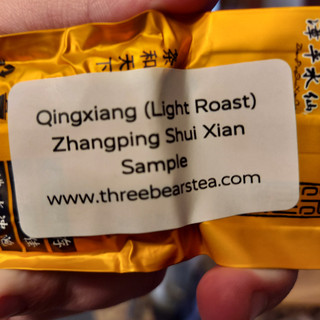



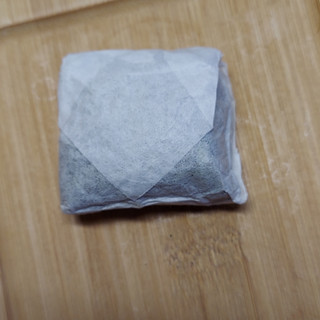
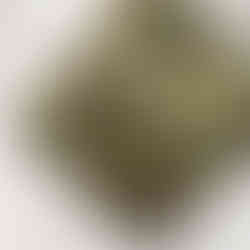







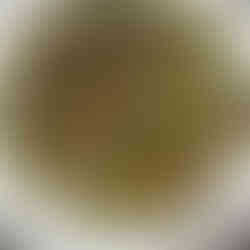


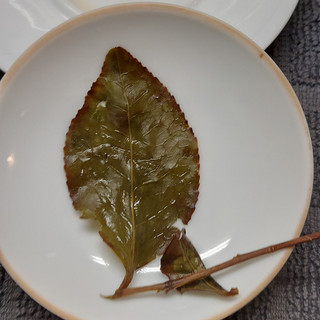


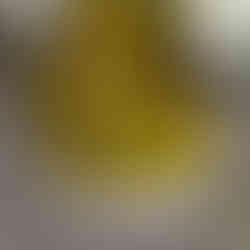

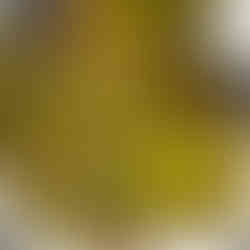



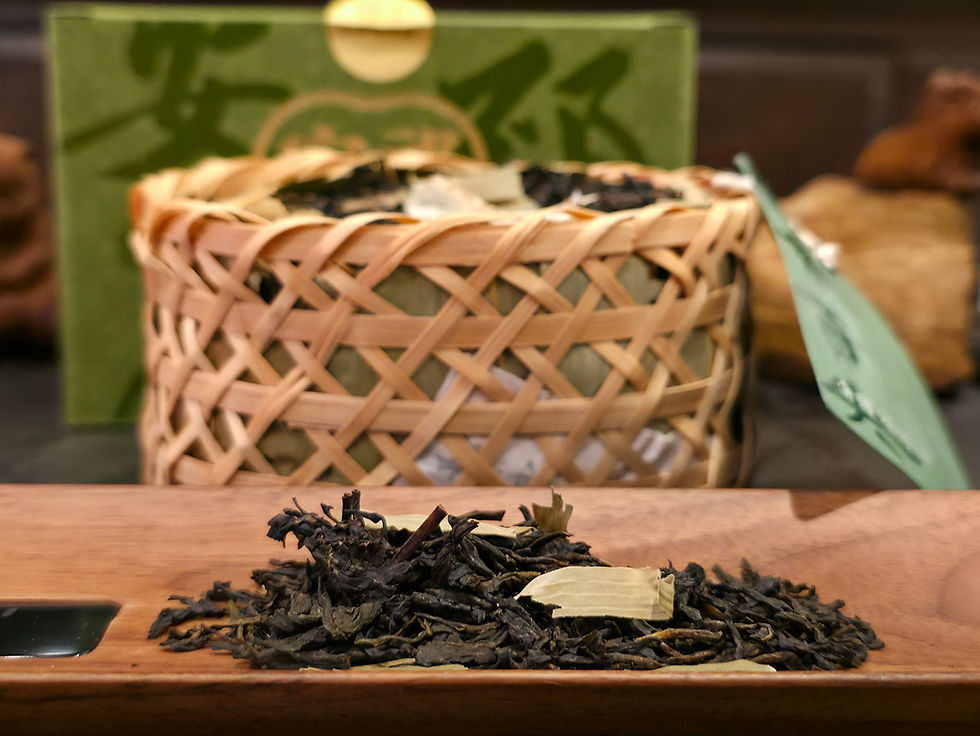


Comments